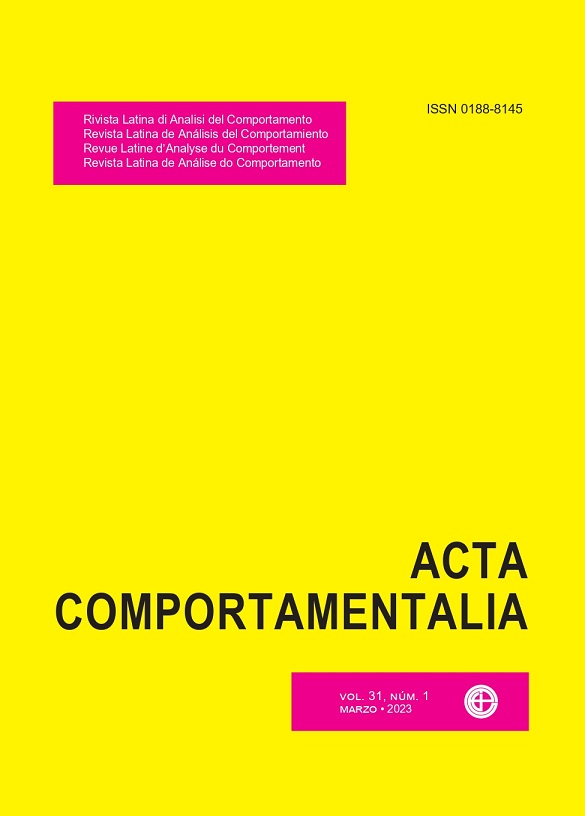Autoclitic behavior in passive, aggressive, and assertive interpersonal repertoires
DOI:
https://doi.org/10.32870/ac.v31i1.85002Keywords:
verbal behavior, interpersonal relations, social skills, assertiveness, aggressionAbstract
In the Social Skills Training (SST), interpersonal repertoires (passive, aggressive and, assertive) are defined by their consequences. To contribute to the behavioral perspective of SST, this study aimed to analyze the autoclitic processes in passive, aggressive, and assertive verbal behaviors of adults. The speeches of four actor participants (two of each sex) and two confederate interlocutors (of both sexes) were analyzed during the application of the Social Competence Assessment Scale. Actor participants played characters with predominantly passive and aggressive speech repertoires and confederate interlocutors played characters with an assertive repertoire. Two participants of different sexes first played an aggressive followed by a passive character; the two other participants played them in reversed order. The data demonstrated that: (a) socially competent aggressive speeches occurred more often than passive ones; (b) aggressive speeches are characterized by higher absolute frequencies of autoclitics (especially quantifier and relational); (c) high percentages of qualifiers or manipulatives autoclitics composed passive discourses; and (d) quantifiers and relational autoclitics integrated the assertiveness property of speech. We concluded that the descriptive and manipulatives autoclitics can signal social incompetence or low assertiveness, and the quantifying autoclitic can signal social competence or assertiveness. Furthermore, qualifying autoclitics probably are strongly related to passive speech, and relational autoclitics seem to be functionally related to situations evolving the defense of rights, showing high frequency in assertive and aggressive discourses. This study contributes to the functional analysis of verbal behavior of passive, aggressive, and assertive repertoires in SST. The description and analysis of lexical autoclitic verbal components of assertive, aggressive, and passive discourses in an interpersonal context, like those analyzed in this study, can be used as behavioral-analytic guidelines for SST studies.
Downloads
Downloads
Published
How to Cite
Issue
Section
License

<a rel="license" href="http://creativecommons.org/licenses/by-nc-sa/4.0/"><img alt="Licencia de Creative Commons" style="border-width:0" src="https://i.creativecommons.org/l/by-nc-sa/4.0/88x31.png" /></a><br />Este obra está bajo una <a rel="license" href="http://creativecommons.org/licenses/by-nc-sa/4.0/">licencia de Creative Commons Reconocimiento-NoComercial-CompartirIgual 4.0 Internacional</a>.






